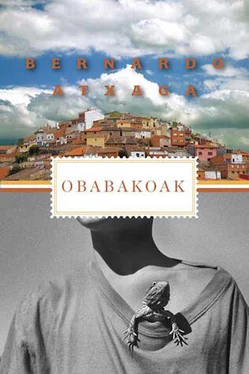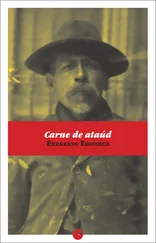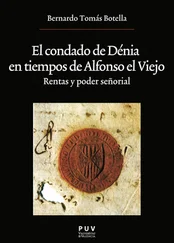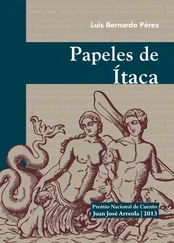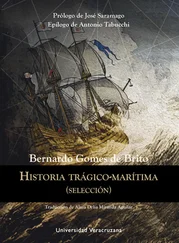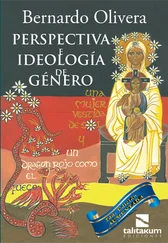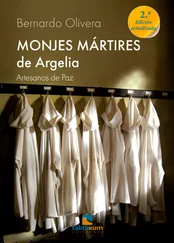Bernardo Atxaga - Obabakoak
Здесь есть возможность читать онлайн «Bernardo Atxaga - Obabakoak» весь текст электронной книги совершенно бесплатно (целиком полную версию без сокращений). В некоторых случаях можно слушать аудио, скачать через торрент в формате fb2 и присутствует краткое содержание. Год выпуска: 2010, Издательство: Graywolf Press, Жанр: Современная проза, на английском языке. Описание произведения, (предисловие) а так же отзывы посетителей доступны на портале библиотеки ЛибКат.
- Название:Obabakoak
- Автор:
- Издательство:Graywolf Press
- Жанр:
- Год:2010
- ISBN:нет данных
- Рейтинг книги:3 / 5. Голосов: 1
-
Избранное:Добавить в избранное
- Отзывы:
-
Ваша оценка:
- 60
- 1
- 2
- 3
- 4
- 5
Obabakoak: краткое содержание, описание и аннотация
Предлагаем к чтению аннотацию, описание, краткое содержание или предисловие (зависит от того, что написал сам автор книги «Obabakoak»). Если вы не нашли необходимую информацию о книге — напишите в комментариях, мы постараемся отыскать её.
Obabakoak
The Observer
Obabakoak — читать онлайн бесплатно полную книгу (весь текст) целиком
Ниже представлен текст книги, разбитый по страницам. Система сохранения места последней прочитанной страницы, позволяет с удобством читать онлайн бесплатно книгу «Obabakoak», без необходимости каждый раз заново искать на чём Вы остановились. Поставьте закладку, и сможете в любой момент перейти на страницу, на которой закончили чтение.
Интервал:
Закладка:
She was listening to the songs of all these fish and of a hundred more and of another hundred still.
But she was not only listening to the fish and the birds, she was also listening to the snakes that slither up and down the trees, as she sat there at the door of the shack, looking out at the jungle and thinking about the letter she had received a year before in Dublin: If lost, return to sender: Doctor Thomas Sheldon, Napo Street, Iquitos, Peru, said the return address on the letter, in which her husband declared his intention of journeying deep into the jungle. He wanted to forget the faces of the soldiers he had seen die in Verdun and in Arras, he wanted to forget the terrible bayonet wounds that — God knows — he had been unable to treat; he felt terribly disillusioned with himself and with the world and his primary aim was to cast into the Amazon River the medal awarded to him for his work as Medical Captain. It was a year since she’d received the letter in Dublin and after that there had been nothing, only silence. And Laura Sheldon (maiden name, Laura Sligo) feared that Thomas might already be dead and lying at rest near the source of the Unine, in that same Tierra Alta she was contemplating then as she listened to the fish, the birds, and the snakes of the jungle, to the afaninga that whistles like a young boy, and to the mantona with its ten colors, and to the naka, which is small but very poisonous, and to the black chusupe, that grows to a length of sixteen feet and bites like a dog, and to the giant yanaboa, with a body the thickness of a well-built man, and to the sachamana and the yakumana.
Laura Sheldon (maiden name, Laura Sligo) was listening to the way the songs of all the snakes — and the songs of a hundred more and another hundred still — blended with the songs of the fish and the birds, as she sat there at the door of a shack in La Atalaya, thinking about her husband and unconvinced by what César Calvo and I kept telling her:
“I think the doctor went up the Ucayali and then bore left toward the Unine,” César Calvo, the wise man of Iquitos, was saying. “And if that is the case, then you’ve no need to worry. The doctor will now be among the Ashaninka, who are a good people. The Ashaninka don’t attack viracochas like your husband. I mean, white people who come in peace.”
As well as being a wise man and an expert on everything to do with the jungle, César Calvo was also a good and prudent man. He spoke of the Ashaninka, but not of the Amawaka, the tribe living to the right of the Ucayali, by the shores of the Urubamba, an option that would prove fatal to a viracocha, whether he came in peace or not.
“Now you have less reason to despair than ever, Laura. For the first time in three months, we have a firm trail to follow. Tomorrow or the day after tomorrow we will find your husband, I’m sure of it,” said I, the man she had hired as a guide in Cuzco, when she was still a beautiful girl just arrived from Dublin, and not a woman worn out and wasted by the jungle. I was fond of her, I felt myself to be her friend, and I would have given anything to be of consolation to her.
But she wasn’t listening to us, only to the inhabitants of the jungle: to the carachupausa, the papasí, the huapapa, to the yungururu, the ayaymaman, and to the yanaboa and the naka ; and also to the makisapa monkey and to the wapo toad and to the cupisu turtle.
And then, suddenly, the whole jungle fell silent. The birds fell silent, the fish and the snakes fell silent, all the other animals fell silent, and, alone in that silence, only the lament of the ayaymaman could be heard, calling out like a lost child again and again. Night had fallen on the Amazon.
Laura Sheldon (maiden name, Laura Sligo) turned her head in the apparent direction of that solitary song, and then, huddled in her chair, she burst into tears. And for a long time there were only two songs in all that vastness: Laura’s sobs and the cry of the ayaymaman.
It had grown completely dark when César Calvo, the good man of Iquitos, went over to her and spoke to her like a brother.
“We will find him. But now you must sleep. We have a long day ahead of us tomorrow, seven hours to the Unine and then about the same again to the land of the Ashaninka. You must sleep. I’m going to see if the canoes are ready and to reach an agreement with the Indians. I hope they’re in the mood for rowing,” he added before going off toward another of the shacks in La Atalaya.
Then it was my turn to go over to Laura, not like a brother, but like a man who could not recall ever having met a woman quite like her: so intelligent, so brave, so very nice.
“Cheer up, Laura. Tomorrow we’ll find your husband, you’ll see. And when you throw your arms around his neck I want to see you laugh out loud because I’ve never seen you laugh. And it’s about time I did, I think.”
She forced a smile, put a hand on my arm, and told me not to worry, she was feeling better already.
Shortly afterward César returned, saying that everything was in order and that each of us would go in our own canoe with two rowers, at least as far as the Unine.
“Only as far as the Unine?” I asked.
“That’s right. Once we reach the Unine we’ll have to shift for ourselves. The Indians from La Atalaya will have nothing to do with the Ashaninka.”
We remained a little longer beneath the starless night sky, looking over in the direction of the green Tierra Alta we hoped to traverse. Then we went into the hut and lay down to sleep, wrapping ourselves up in great sheets of canvas, a protection against the tiny piri bats, the most efficient bloodsuckers in the jungle.
However, it wasn’t the piri that kept me from sleep a good part of the night, it was concern about the Amazonian rains that would soon be upon us. César Calvo, the wise man of Iquitos, never spoke of them but I knew he was worried too. If we didn’t hurry, the rains would cut off our path back, forcing us to remain among the Ashaninka, isolated from civilization, until the waters of the river became navigable once more.
The Ashaninka were good people, of course, excellent people, but, nonetheless, nothing had been quite the same in the jungle since the advent of the rubber tappers and their Winchester rifles. It was best not to take risks and to make the return journey as quickly as possible.
The following morning, once we had each taken our place in the three canoes César Calvo had hired, we began our journey up the Ucayali, the canoes forming a line with Laura and her two rowers in the middle. Seven hours later, having met with no mishaps, we could see the waters of the Unine, almost yellow in color, mingling with those of the Ucayali, and we knew the moment of truth had arrived. We would soon be among the Ashaninka. Laura would at last know her husband’s fate.
Almost immediately, the Indians raised their oars and pointed to the red trees rising before us on one of the small islands in the river. As César explained later, they were palosangres, a species typically found at the mouth of the Unine.
With extreme caution, the Indians replaced their oars in the water and rowed us to the shore. As far as they were concerned, the journey was at an end.
“Are you sure you won’t go on?” César asked them once he had handed them the money promised them in La Atalaya. “I’ll pay you double if you’ll take us up the Unine,” he added.
But it was useless, they were much too frightened. After a curt farewell, they climbed into two of the canoes and rowed off toward their village. All about us screamed hundreds of monkeys, the half-crazy makisapa of the Upper Amazon.
Читать дальшеИнтервал:
Закладка:
Похожие книги на «Obabakoak»
Представляем Вашему вниманию похожие книги на «Obabakoak» списком для выбора. Мы отобрали схожую по названию и смыслу литературу в надежде предоставить читателям больше вариантов отыскать новые, интересные, ещё непрочитанные произведения.
Обсуждение, отзывы о книге «Obabakoak» и просто собственные мнения читателей. Оставьте ваши комментарии, напишите, что Вы думаете о произведении, его смысле или главных героях. Укажите что конкретно понравилось, а что нет, и почему Вы так считаете.
